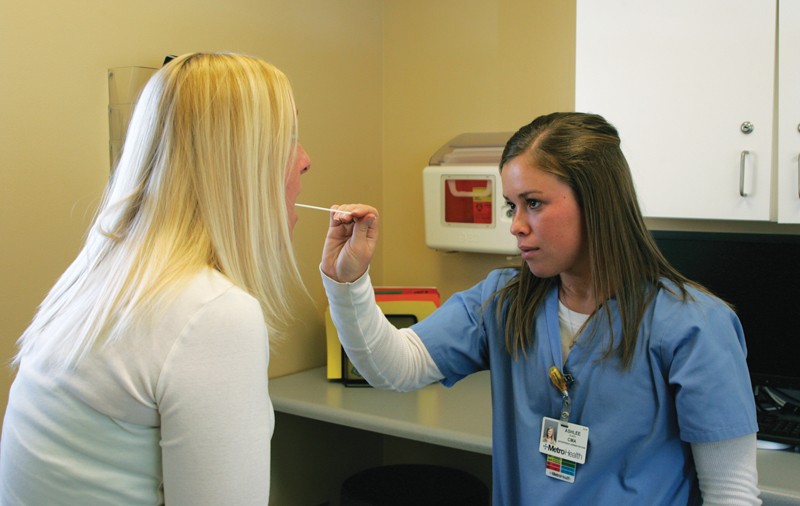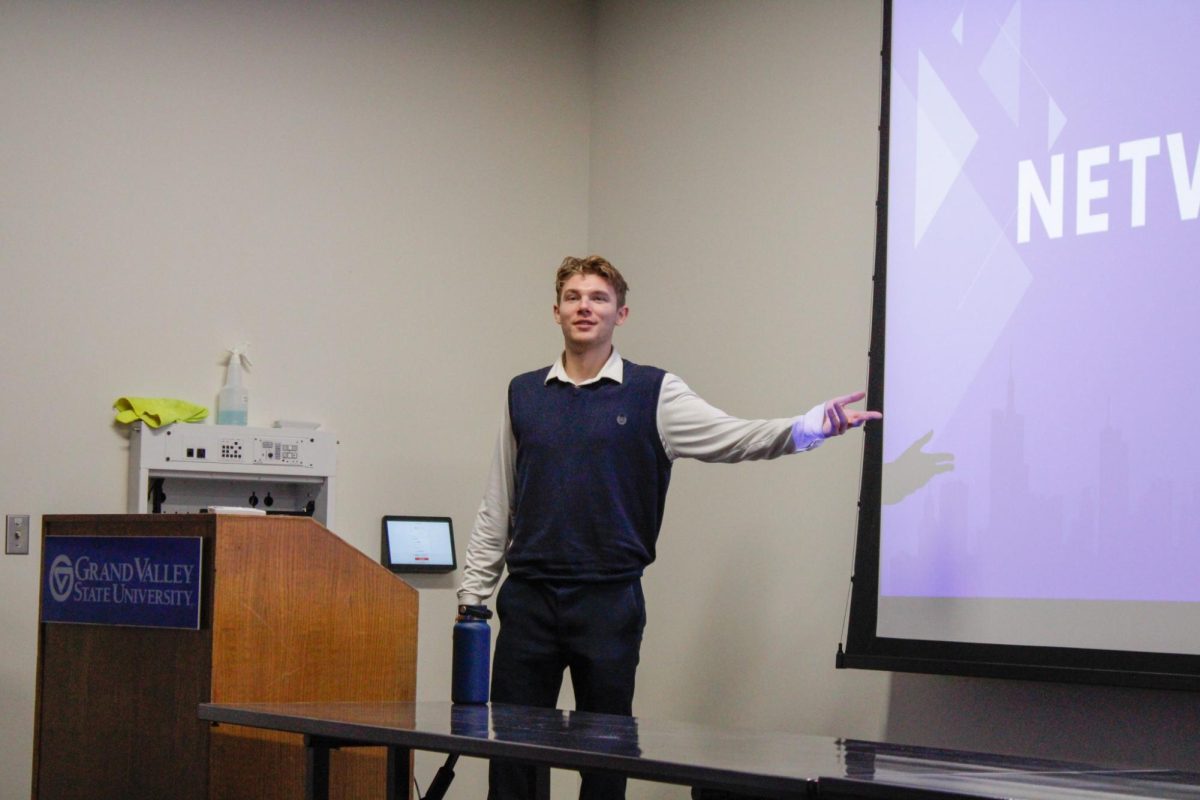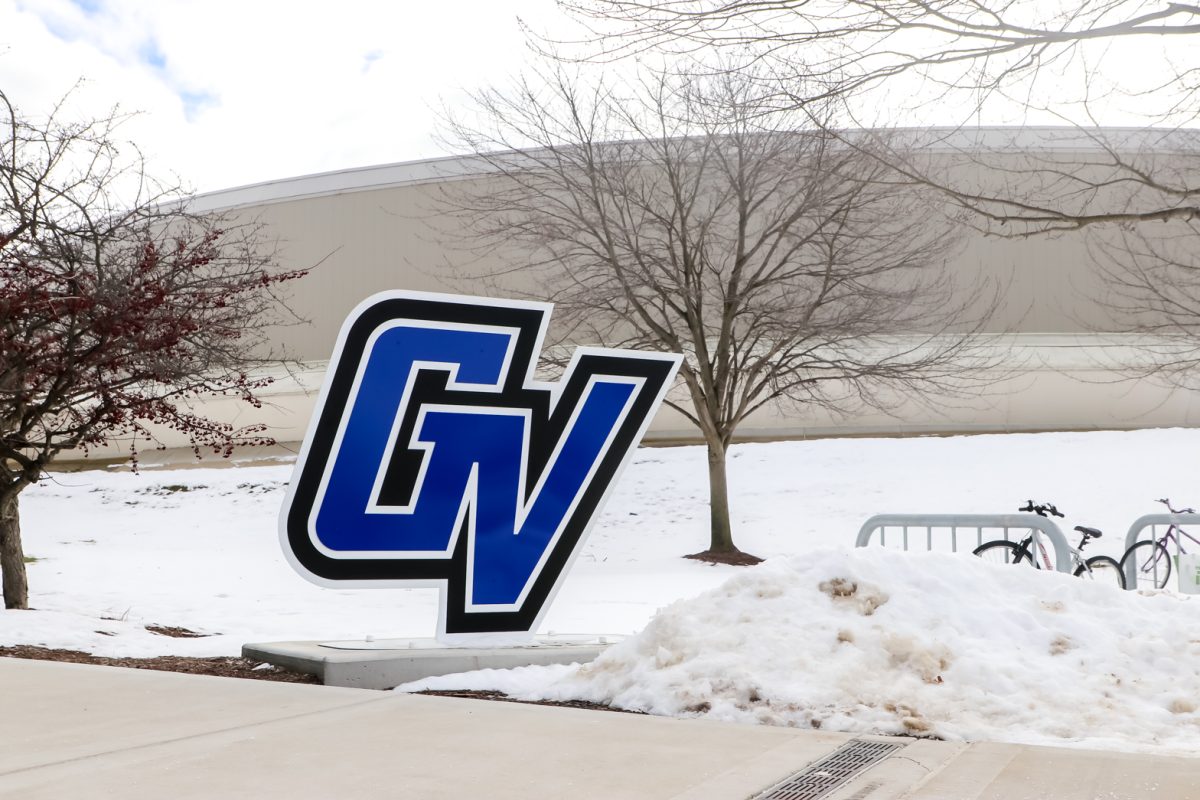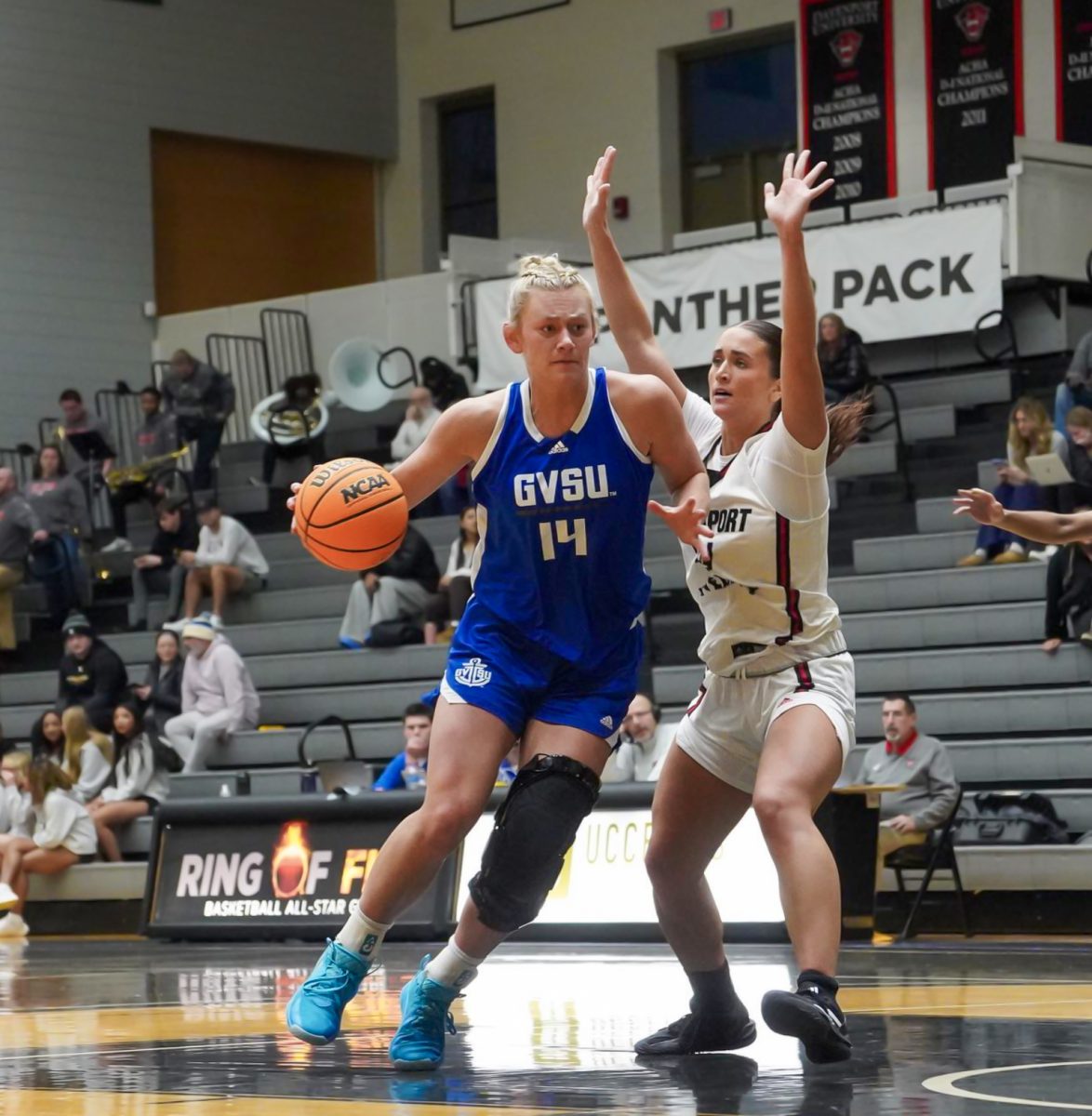Kirkhof College of Nursing moves forward amid budget reduction, structural changes

GVL / Archive Student nurse Ashlee Olsen checks out a patient in the Health Services Building.
Feb 1, 2021
The Kirkhof College of Nursing (KCON) is one of many colleges at GVSU that has faced budget reductions during the 2020-21 school year. Funds allocated from the university to the college stand at around $8.4 million, the lowest number since 2016 following years of steady increases.
The college believes that even with this drop, there should be no major cause for concern. The college made several temporary cuts due to COVID-19, as well as long-term cuts that show signs of the college becoming more efficient and self-sustainable.
Temporary budget cuts for the college include reducing the travel fund due to academic conferences being canceled or held virtually, as well as a lowering of funds for professional development and adjunct teaching. The college also saved a significant amount due to retirements.
The long-term cuts are possible because the college is receiving significant funding from other places. KCON has received $9.8 million in grant money since 2018. Donors include major organizations such as the National Institute of Health, Blue Cross/Blue Shield and the Helene Fuld Health Trust, among others.
“KCON has gained tremendous efficiencies this fiscal year which are reflected in their budget reductions,” said Associate Vice President for Academic and Student Affairs Bonnie Bowen, who responded on behalf of KCON and Provost Maria Cimitile. “The grant funds have enabled KCON faculty to provide exceptional research, educational and practice opportunities that have also optimized community and practice partnerships in a shared commitment to transform health and well-being.”
Bowen also stated that the pandemic has not impacted enrollment and KCON is still seeing a high volume of applications for the program, which only adds 80 new students per semester. The need for nurses has given the college an opportunity to help fight COVID-19 in West Michigan.
“The pandemic initially caused disruption in traditional clinical learning rotations, but as PPE and safety protocols were perfected, the greater Grand Rapids practice community has been able to work closely with KCON to ensure ongoing experiential direct care experiences,” Bowen said. “As an example, this includes using nursing students and faculty to assist in COVID-19 testing and with vaccine administration clinics, working with public health officials.”
Outside of the traditional nursing program, enrollment for KCON’s Second Degree Bachelor’s of Science in Nursing (BSN) program has increased to 24 additional students per year. The BSN program allows students who are already Registered Nurses to focus on specific areas that they are interested in. The graduate nursing program has seen recent changes to its curriculum along with growth in enrollment.
Despite experiencing a major budget cut on the surface, KCON appears to be set up for continued success in the near and long-term future.
“KCON has a strong reputation for strategic thinking, relational partnerships with practice, a focus on co-design and reciprocity in practice relationships, and persistence in attaining strategic goals,” said Former KCON Dean Cynthia McCurren. “While budget cuts present challenges, they do not derail KCON’s planned intentions. KCON faculty and staff continue to use creative thinking while finding new ways to achieve the excellence that the college is committed to sustaining.”

























